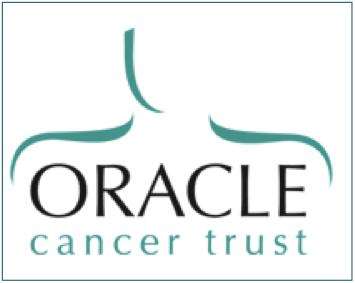Cancer of the tonsils case sparks new debate
 As a member of the board of the Oracle Cancer Trust, the UK’s leading head and neck research fund, I am acutely aware of new developments in cancer treatments both in the UK and around the world. I am also an active participant in ongoing research, and am often in discussions relating to the rise in certain types of head and neck cancers, one of these being cancer of the tonsils.
As a member of the board of the Oracle Cancer Trust, the UK’s leading head and neck research fund, I am acutely aware of new developments in cancer treatments both in the UK and around the world. I am also an active participant in ongoing research, and am often in discussions relating to the rise in certain types of head and neck cancers, one of these being cancer of the tonsils.
This year the work of Oracle was brought much closer to home when our CEO, Anthony Sykes, talked to The Daily Mail about his own unexpected diagnosis cancer of the tonsil.
In Anthony’s case there was no indication that lifestyle caused the tumor on his tonsil, the disease was a random event that was fortunately caught early and cured. But this case, and many more like it, have sparked a public discussion over the increased incidence of cancer of the throat, and the tonsils in particular. Could an increase in throat cancers be a consequence of a reduction in medical intervention to remove tonsils in young people with tonsillitis?
Over the past 20 years head and neck cancers have increased dramatically, over and above more widely publicised cancers such as testicular cancer and breast cancer. Yet head and neck cancers do not receive the equivalent publicity to these more commonly discussed diseases. So any public discussion about the disease can only be a good thing for raising awareness.
Cancers in the head and neck areas can be attributed to many factors, some of which are connected to lifestyle, such as smoking and drinking alcohol. But for every new lifestyle habit that is adopted, we can reasonably consider that other unhealthy or high-risk habits have been dropped – chewing tobacco is nowhere near as popular as it was 50 years ago for instance. Even smoking has now become socially unacceptable in public spaces such as restaurants and is no longer glamorized in films. So it is no surprise that until now the public perception of head and neck cancers is that cases are reducing. Yet sadly this is not the case.
An increase in head and neck cancers is not just down to lifestyle – if it was it would be a problem that is much easier to solve. Cases of cancer of the tonsils have more than doubled to around 1000 cases per year since the nineties. Over the same period, the removal of tonsils in children and young people with recurrent tonsillitis has dramatically reduced. Coincidence? Or cause and effect? It’s questions like these that Oracle investigates by supporting the research of wider studies that will ultimately help with the fight against cancers of the head and neck.
Oracle can’t fight the big fight against head and neck cancer alone. We need your support to help us grow the development of pioneering studies into new cancer treatments. Our aim is to improve outcomes and enhance quality of life for each and every cancer patient in the UK and beyond. To find out more and to show your support to the Oracle Cancer Trust please click here for more information or to donate what you can.
For more information about Prof Nutting's work please visit the CV page, get in touch or arrange a consultation.


